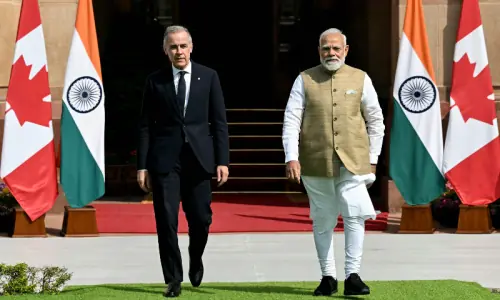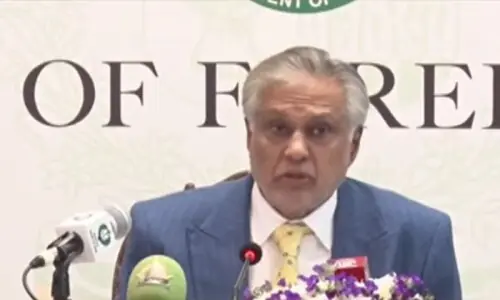ISLAMABAD: Pakistan’s nuclear policy is shaped by evolving security dynamics of South Asia, thus taking all necessary measures to maintain a full spectrum deterrence capability in order to safeguard our national security, the Foreign Office said on Wednesday.
A recent article published in The Washington Post claimed that Pakistan and US were conducting negotiations to finalise an accord which will lead to a civil nuclear deal between the two countries.
Reacting to the report published in US media, the FO spokesperson stated: “Pakistan’s nuclear policy is shaped by evolving security dynamics of South Asia, growing conventional asymmetry, provocative doctrines and aggressive posturing by India, which obliges us to take all necessary measures to maintain a full spectrum deterrence capability in order to safeguard our national security, maintain strategic stability and deter any kind of aggression from India.”
The spokesman added that “as a responsible nuclear state, Pakistan remains actively engaged with the international community, including the United States, on nuclear stability and security issues”.
Pakistan seeks peace and strategic stability in South Asia as corner stone of its policy and considers conflict resolution as a means to achieve this end, he added.
“This policy has been reiterated by Pakistan’s highest decision-making body, the National Command Authority (NCA), chaired by the prime minister, in its meeting on September 9, 2015.”
Earlier, an article published by The Washington Post quoted a source familiar with the talks between Pakistan and United States and said that, “Pakistan has been asked to consider what are described as ‘brackets’.”
The newspaper further suggested that Pakistan would agree to restrict its nuclear program to weapons and delivery systems that are appropriate to its actual defence needs against India’s nuclear threat. “Pakistan might agree not to deploy missiles capable of reaching beyond a certain range,” it quoted as an example of the accord between the two countries.
The sources, however, said the negotiations between the US and Pakistan on the agreement would be slow and difficult due to the fact that Pakistan covets its nuclear programme and it is not yet clear if the country would eventually be willing to accept the limitations that would be required.
It revealed that the issue is being discussed quietly in advance to Prime Minister Nawaz Sharif’s upcoming visit to Washington on October 22, 2015.
"Any progress would break a stalemate that has existed since the United States detected Pakistan’s nuclear program in the mid-1980s, and especially after Pakistan exploded its first weapon in 1998," the article reads.






























